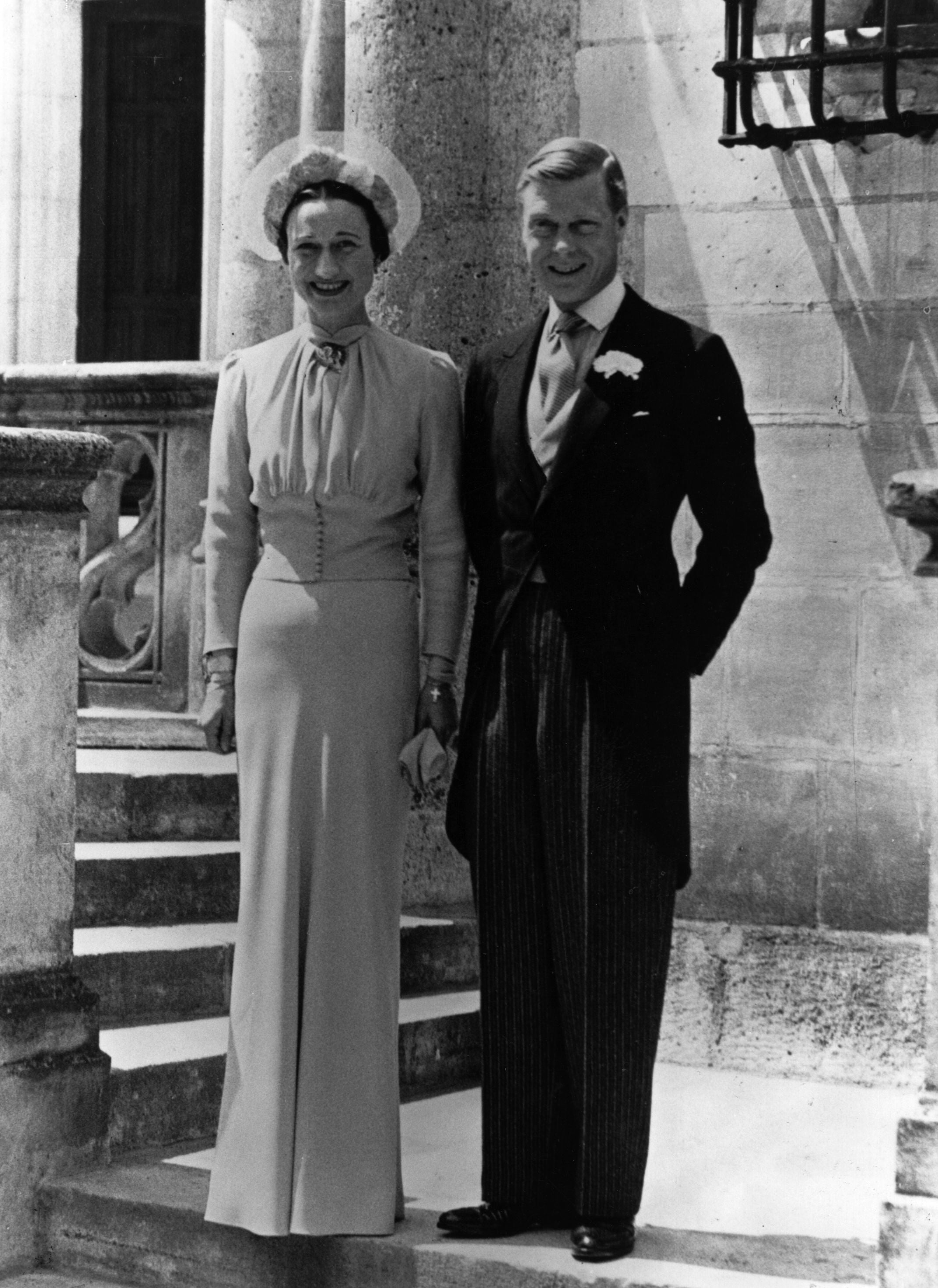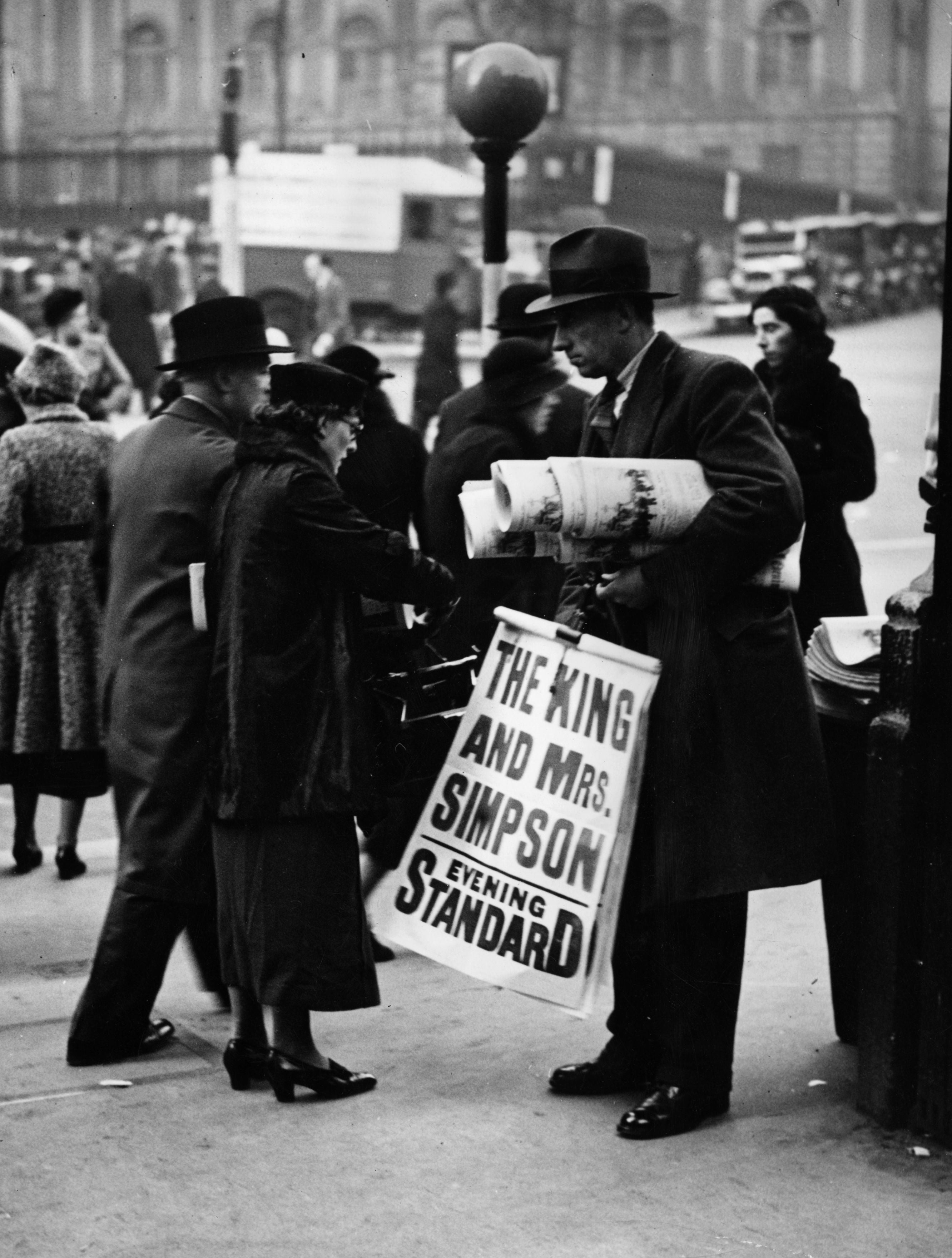‘I collided with the establishment’: Inside the Wallis and Edward TV interview that rocked the monarchy five decades before Meghan and Harry
Harry and Meghan’s upcoming Oprah interview recalls the last time two royal exiles agreed to a televised sit down with the BBC in 1970
Your support helps us to tell the story
From reproductive rights to climate change to Big Tech, The Independent is on the ground when the story is developing. Whether it's investigating the financials of Elon Musk's pro-Trump PAC or producing our latest documentary, 'The A Word', which shines a light on the American women fighting for reproductive rights, we know how important it is to parse out the facts from the messaging.
At such a critical moment in US history, we need reporters on the ground. Your donation allows us to keep sending journalists to speak to both sides of the story.
The Independent is trusted by Americans across the entire political spectrum. And unlike many other quality news outlets, we choose not to lock Americans out of our reporting and analysis with paywalls. We believe quality journalism should be available to everyone, paid for by those who can afford it.
Your support makes all the difference.Fifty years before Harry and Meghan sat down with Oprah, another exiled royal couple gave a tell-all interview about their need for “independence” from “the establishment”, that was filled with melancholy, bitterness and shocking misogyny.
They lounged in two, carved chairs in their luxurious, Paris apartment.
The 74-year-old Duchess of Windsor in a yellow, chiffon dress, blue eyeshadow and a nervous grimace, and the former King of England, 75, in a oversized grey suit, legs spread so wide he could be commuting on the northern line, rather than giving his first televised interview since abdicating the throne of England in 1936, sparking a constitutional crisis and global scandal.
Follow Meghan and Harry news live: Latest updates as Oprah interview to air
Or, as the BBC put it last year in an article titled ‘Wallis Simpson’s hard lessons for Harry and Meghan’: “A popular, playful prince fell in love with a strong-willed US divorcee, who ended up vilified by a hostile British press” and estranged from the Royal family.
During their 50-minute interview, filmed by the BBC in October 1969 and released in January 1970, the couple appear intensely uncomfortable; caught between looking like they’re in a hostage situation and wanting to put on a smile and appear “very happy” to the millions of people watching with their noses pressed up to the TV.
Wanting to spill the beans on their ‘terrible’ treatment, as well as relish the chance to relive their former ‘glory days’ that was the whole 10 months that he was Edward VIII, also known as the Grace of God, of Great Britain, Ireland, and of the British Dominions beyond the Seas, King, Defender of the Faith, Emperor of India.

Now going by ‘David’, he was reminded by interviewer Kenneth Harris that he previously told him that he was “a king who collided with the establishment”.
The former monarch nodded and, echoing some of his great, great nephew’s claims half a century later, explained that although he didn’t think he was a “rebel” against the “establishment”, he wanted to be “independent”.
“I wanted to be an up‐to date king. I had lots of political conceptions but I kept them to myself, and that is the tradition of the Royal Family,” he said, clasping his hands.
The Duke added, in a comment that somewhat underplayed the seismic event: “To some extent I did [collide with the establishment], not very violently. Not in a bad way ... I’m being conceited but I think it might have helped the establishment too. It might have revived the thinking of the establishment.”
The Duchess added: “I think he had lots of pep and was very much ahead of his time. I think he wanted to establish things that were a little – not ready for them perhaps.”
The broadcast paints them as two tragic figures from a bygone era, recycling anecdotes from more than 30 years ago, dining out on things like how then prime minister, and famed orator, Winston Churchill, used to spell-check his speeches.
How he was a man of the people because he once refused to tour some slums in a Rolls Royce and instead toured them in a more ordinary vehicle.

Or how one of the great modernisations he wanted to make when monarch was ending the stuffy tradition of wearing top hats.
He felt a bowler was more modern.
What is striking, considering the level of media hysteria around the as yet un-aired interview with Meghan and Harry on March 7 in the US and March 8 in the UK, is just how boring the sit down is.
One insight from the former king is that: “I’m a very, very poor golfer, I once shot a 75 ... about 14-years-ago.”
A reminder either of the mundanity of their existence after being cut off from royal life, or of the need to be careful due to the fact that, unlike with LA’s newest royal residents, the palace still held the purse strings.
In the decades after the abdication, when three out of the Queen’s four children are divorced, including the future King of England, it became harder to understand the ferocity of the opposition to the match at the time on the basis of her status as a twice-married American.
Rather than the much quieter problem of the couple’s controversial politics.

In 1933, when Germany started building concentration camps, the future king allegedly told his German relative, former Kaiser Wilhelm II’s grandson, Prince Louis Ferdinand, that it was “no business of ours to interfere in Germany’s internal affairs either re Jews or re anything else”.
“Dictators are very popular these days,” he added, “we might want one in England before long.”
The same year, footage of the seven year old future Queen Elizabeth II being taught the Nazi salute by her uncle was shot, before being published by The Sun in 2015.
A year after the abdication, and two years before the declaration of the Second World War in 1939, Wallis and Edward visited Nazi-run Germany, where the former king gave Nazi salutes and attended receptions with Hitler and his henchmen Jospeh Goebbels and Hermann Göring.
Leaked documents in 1954, known as the Marburg or Windsor files, revealed the Nazi’s Operation Willi, a plan to kidnap Edward VIII and re-install him as King, should they successfully conquer Britain.
Then prime minister Churchill arranged for the Duke and Duchess to go to the Bahamas during the course of the war to try and avoid such a plan, where they allegedly remained in contact with members of the Third Reich.
Yet, unlike the Oprah interview, which has been billed as having “nothing off limits” (albeit being filmed before allegations of bullying by Meghan surfaced this week), the 1970 BBC interview glosses over any questions about alleged Nazi sympathies or family rifts.
Harris simply refers to the Duke’s “job in the Bahamas”, before asking him if he, like his future relatives who didn’t ask permission from the Crown to start a whole, new, financially independent career in the states, would have liked to have another one.
He replied: “Yes, I offered my services if they were required. I never got any.”
“Why didn’t you get a job do you think?”, probed Harris.
The Duke looked mournful and replied haltingly and enigmatically, perhaps referencing the palace’s famously traditional mandarins: “You’ll have to ask ... most of the people, I think, I’m afraid, are underground now, who prevented me.”
He paused for a long time and then, maybe thinking better of saying anything more, added: “... hard to say.”
But whereas the Duke is treated to some fairly friendly opportunities to relive his time as king, the Duchess, who was previously called by her husband “the most independent woman I had ever met”, was asked an extraordinary succession of questions about whether women, in 1970, were destroying their sex if they wanted to work.

“Do you think that it’s quite a good thing for women to have careers?”, he asked, indicating the acceptable answer.
“Yes, I’d like to be the head of an advertising agency”, she replied, not giving it.
Appearing a little shocked, he tried again: “You don’t think that being the head of such a business has a somewhat defeminising effect on women?”
“No at all”, she shot back. “I don’t see why it should, I think that they have to use their femininity in business.”
He carried on: “You don’t think that women have suffered somewhat over the last 30-years by being too competitive with men, that they’ve lost something of their essential character and charm?”
“No I don’t think so really. I know a great many women in business and I don’t think they have at all.”
Finally, the interviewer asked if the couple had any regrets.
The Duchess smiled, shifted uncomfortably, and said: “Oh about certain things, yes, I wish it could have been different. I mean, I’m extremely happy ... We’ve had some hard times but who hasn’t? Some of us just have to learn to live with that ... I think happiness is a great secret.”
Echoing the same sentiments that Harry would, the Duke, who died just two-years after the interview aired, replied: “I have no regrets, I stay interested in my country, Britain, your land and mine. I wish it well.”
Join our commenting forum
Join thought-provoking conversations, follow other Independent readers and see their replies
Comments